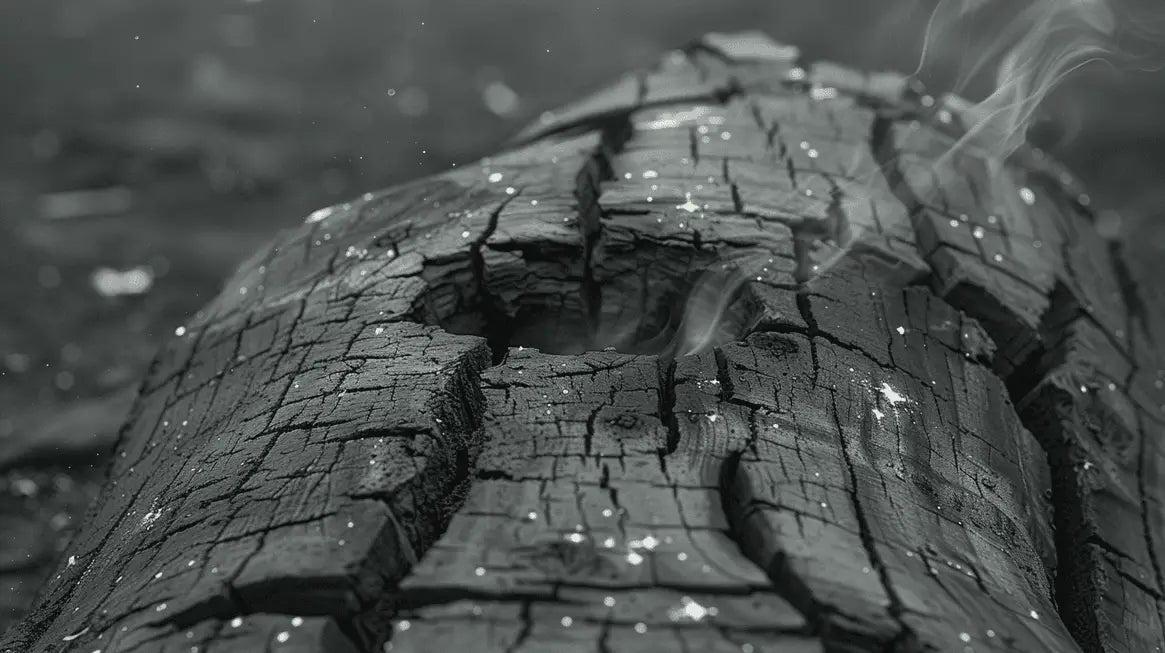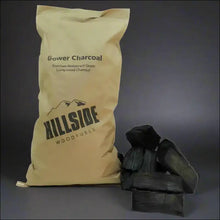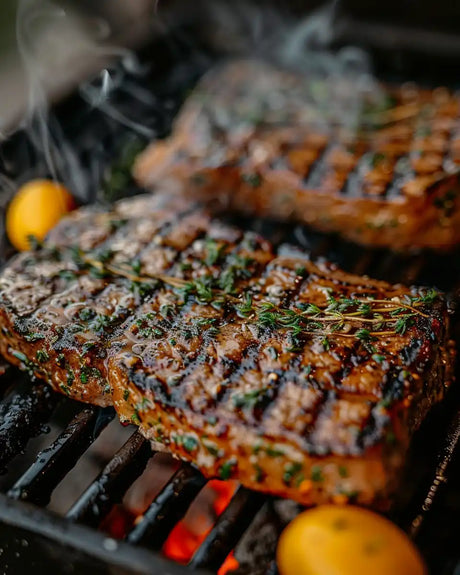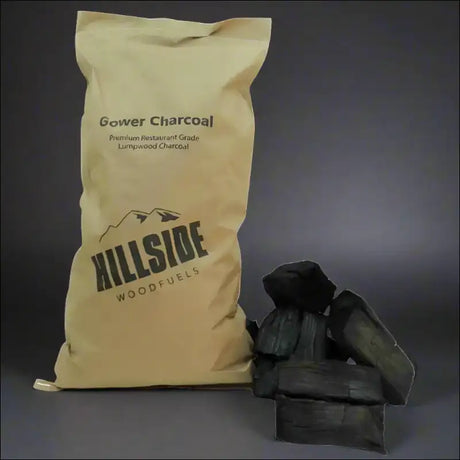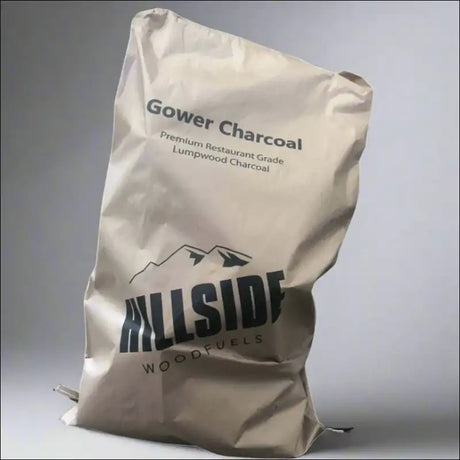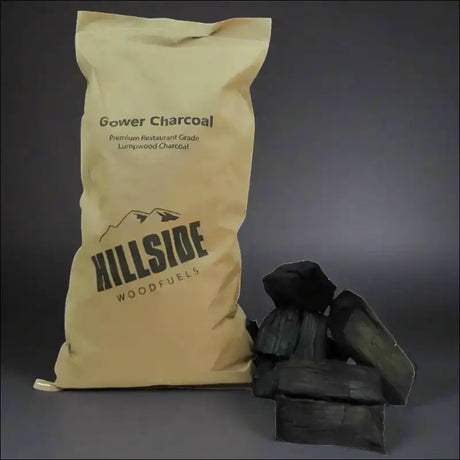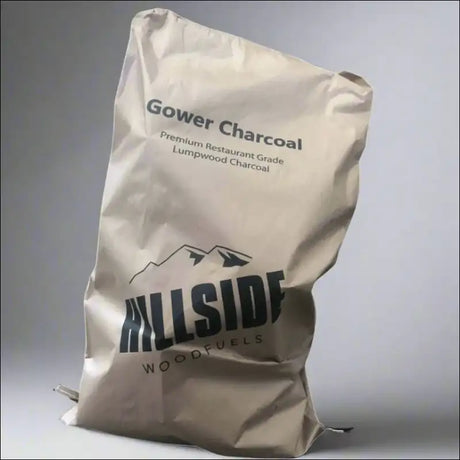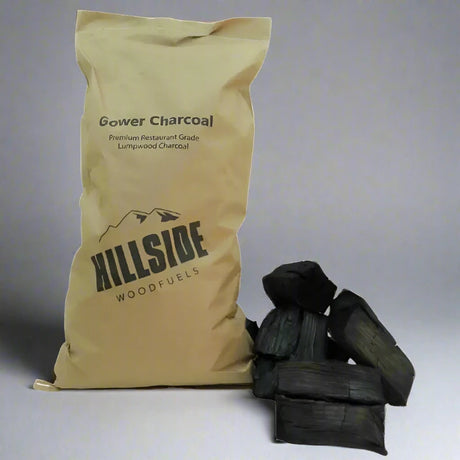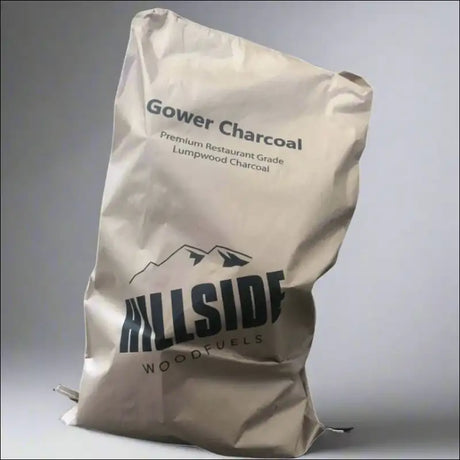Ah, the Great British Barbecue! There's nothing quite like the sizzle of sausages and the waft of smoky aromas on a sunny afternoon. But have you ever stopped to ponder the unsung hero of your garden gatherings? That's right, we're talking about charcoal. This humble fuel holds more secrets than you might imagine. Let's dive into seven mind-blowing facts about charcoal that will revolutionise your grilling game and make you the talk of the cul-de-sac!
1. Charcoal Isn't Actually Coal
Hold onto your tongs, folks! Despite its name, charcoal isn't related to coal at all. While coal is a fossil fuel formed over millions of years, charcoal is made by burning wood in a low-oxygen environment. This process, called pyrolysis, removes water and other compounds, leaving behind a carbon-rich material perfect for grilling.
2. Not All Charcoal Is Created Equal
If you thought charcoal was just charcoal, prepare to have your mind blown! There are two main types: lumpwood charcoal and briquettes. Lumpwood is pure charcoal made from hardwood, while briquettes are a mixture of charcoal dust, binders, and additives pressed into uniform shapes.
Lumpwood charcoal, the purist's choice, burns hotter and cleaner, imparting a subtle smoky flavour to your food. It's like the difference between a fine single malt whisky and a blended variety - both will get the job done, but one offers a more refined experience.
3. Charcoal Can Purify Water (But Don't Try This at Your BBQ!)
Here's a fun fact to impress your mates while waiting for the burgers to cook: charcoal is an excellent water purifier. Its porous structure acts like a sponge, trapping impurities and chemicals. This same property makes activated charcoal a common ingredient in water filters and even some hangover remedies. However, stick to using your BBQ charcoal for grilling - it's not the same as the activated charcoal used for purification!
4. The Hotter the Better (Usually)
Contrary to popular belief, hotter doesn't always mean better when it comes to charcoal grilling. Different foods require different heat levels. For example, a perfectly seared steak needs high heat, while low and slow is the way to go for melt-in-your-mouth pulled pork.
The key is mastering temperature control. High-quality lumpwood charcoal can reach temperatures of up to 500°C (932°F), which is hotter than most home ovens can manage. This high heat is perfect for creating that coveted crispy exterior on steaks and burgers.
5. Charcoal Has Been Around for Millennia

While we might associate charcoal grilling with modern backyard barbecues, humans have been using charcoal for cooking for thousands of years. Archaeological evidence suggests that our ancestors were using charcoal as far back as 30,000 years ago!
In fact, charcoal played a crucial role in human development. Its high heat made it possible to smelt metals, leading to advances in tool-making and eventually the Industrial Revolution. So next time you're flipping burgers, remember you're part of a long and noble tradition!
6. Restaurant-Grade Charcoal Is a Game-Changer
Ever wondered why food tastes so much better at a proper grill restaurant? One secret is the quality of their charcoal. Restaurant-grade charcoal, often made from specific hardwoods, burns hotter, longer, and cleaner than your average supermarket variety.
This high-quality charcoal imparts a subtle, smoky flavour without overpowering the natural taste of the food. It's like the difference between using fresh herbs and dried ones - a small change that makes a world of difference.
7. Charcoal Isn't Just for Grilling
While we love a good BBQ, charcoal's uses extend far beyond the grill. Artists use charcoal for drawing, gardeners mix it into soil to improve drainage and nutrient retention, and it's even used in some skincare products for its purifying properties.
In the culinary world, chefs are experimenting with charcoal in all sorts of exciting ways. From charcoal-infused cocktails to jet-black ice cream, this versatile ingredient is pushing the boundaries of food and drink. Just remember, these trendy treats use food-grade activated charcoal, not the stuff you'd throw on your barbie!
Ignite Your Grilling Passion
There you have it, folks - seven mind-blowing facts about charcoal that are sure to spark your interest and potentially revolutionise your grilling game. From its ancient origins to its modern-day culinary applications, charcoal is so much more than just a fuel for your BBQ.
Next time you're hosting a garden party or simply enjoying a quiet evening grill, take a moment to appreciate the incredible properties of charcoal. Experiment with different types, play with temperature control, and maybe even try your hand at some low-and-slow cooking.
Remember, great grilling is as much about the journey as it is about the destination. So fire up that grill, gather your loved ones, and embark on a flavour-filled adventure. After all, that's what the Great British Barbecue is all about!
Happy grilling, and may your coals always burn bright!

